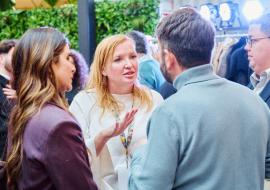Shaping the Future of Macao Tourism
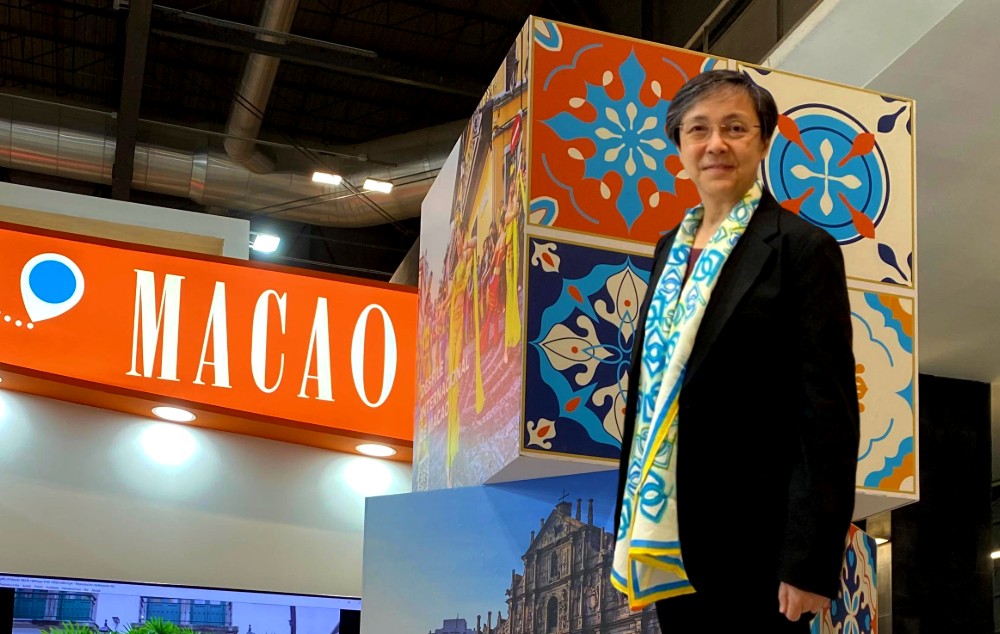
An Exclusive Interview with Maria Helena de Senna Fernandes, director of the Macao Government Tourism Office
Macao, a city renowned for its unique Chinese heritage, is undergoing a remarkable transformation in its tourism strategy. With global travel trends shifting towards digitalization, inclusivity, and sustainability, Maria Helena de Senna Fernandes, Director of the Macao Government Tourism Office (MGTO), shares insights on how the city is adapting to these changes.
Under her leadership, Macao has embraced technological innovations to cater to emerging travel demographics, including digital nomads and experiential travelers. By leveraging mobile payment systems, interactive apps, and partnerships with influencers, Macao is redefining its appeal while maintaining its traditional cultural allure. The city’s efforts extend beyond marketing, focusing on accessibility, responsible tourism, and creating year-round attractions to balance visitor flows.
In this exclusive interview, Mrs. Fernandes delves into the initiatives that position Macao as a dynamic, inclusive, and sustainable destination. From hosting major international sports events to promoting authentic local experiences, she outlines the strategies driving Macao’s tourism renaissance in a rapidly evolving global landscape.
How is Macao adapting to attract the so-called “digital nomads,” a growing segment in global tourism?
Macao has recently undergone a significant transition with a change in government. The new chief executive, supported by five secretaries overseeing various sectors, has brought a fresh perspective to governance. Tourism falls under the Secretary for Economy and Finance, whose extensive experience in economic and technological development has introduced a stronger focus on innovation.
This approach emphasizes leveraging technological advancements to enhance tourism and the broader economy, particularly through digital transformation and mobile payment systems. The pandemic accelerated these changes, as contactless solutions became essential. Today, Macao boasts a range of digital tools, including apps that help visitors plan customized itineraries based on their interests. These innovations complement traditional online promotions, enabling a more dynamic connection with travelers.
The Macao Government Tourism Office (MGTO) has strengthened its presence across global social media and digital platforms, including Instagram, Facebook, and TikTok, as well as Chinese platforms. Collaborations with key players like Expedia, TripAdvisor, and influencers (KOLs) have further expanded its reach. Short videos, created by influencers and visitors, showcase Macao’s offerings and appeal to younger audiences.
Macao has also embraced strategic partnerships to attract diverse demographics. For example, a recent campaign featured K-pop idols, generating significant interest and engagement. However, while efforts target younger travelers, Macao remains committed to its loyal visitors by offering new attractions and events.
Festivals and concerts play a pivotal role in the city’s revitalized strategy. Major international artists like Bruno Mars, K-pop groups, and regional stars from Hong Kong, Thailand, and China regularly perform in Macao, making it a hub for world-class entertainment.
Beyond promotions, the city prioritizes enhancing its tourism products and fostering a welcoming atmosphere. Residents are encouraged to act as tourism ambassadors, ensuring visitors feel embraced and supported during their stay. By combining innovative marketing, upgraded experiences, and community involvement, Macao is positioning itself as a vibrant, inclusive destination for travelers worldwide.
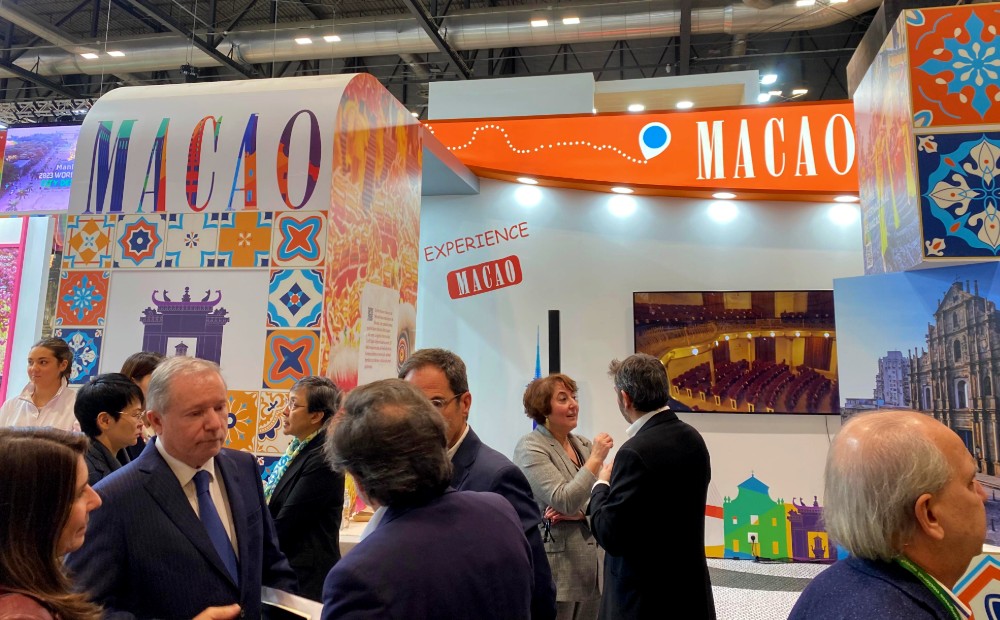
What role do international sports events play in Macao’s tourism strategy, and how do they contribute to the economy and destination promotion?
Sports play an increasingly important role in Macao’s tourism strategy. While many associate Macao with casinos, heritage sites, and cuisine, diversifying the city's offerings is essential to strengthening its tourism sector, which remains a vital part of the economy. The government is committed to using tourism as a vehicle to diversify Macao's economy by incorporating sectors like conventions and exhibitions, culture and creative industries, sports, education, and health. Technology also plays a key role in this transformation.
In terms of sports, Macao boasts a rich tradition, including the iconic Macao Grand Prix, which recently celebrated its 71st edition. Although it’s not a Formula One event, the Grand Prix features the Regional Formula series, GT cars, and motorcycle races, all held during the same weekend. Like Monaco, Macao transforms its streets into a racing circuit, a unique feature that continues to captivate fans.
The Macao Government Tourism Office (MGTO) has strengthened its presence across global social media and digital platforms, including Instagram, Facebook, and TikTok, as well as Chinese platforms
For those unable to attend the Grand Prix in November, the Macao Grand Prix Museum offers an engaging alternative. Operated by the Macao Government Tourism Office, the museum showcases cars and motorcycles used in past races, alongside wax figures of legendary racers like Lewis Hamilton and Ayrton Senna, created in collaboration with Madame Tussauds.
The museum also incorporates interactive elements to make the experience dynamic. Visitors can enjoy interactive games and even admire a life-sized Formula 3 car built entirely from Lego bricks. These additions make the museum a year-round attraction, appealing to motorsport enthusiasts and families alike.
By integrating sports into its broader tourism strategy, Macao continues to diversify its offerings and create unique experiences that attract a wide range of visitors.
That's no small thing.
It's very big, you know. Sports play a vital role in Macao’s tourism development strategy. Beyond the Macao Grand Prix, the city hosts a variety of world-class sporting events that attract international athletes and audiences.
For example, the World Table Tennis (WTT) tournament is a key fixture, bringing some of the biggest names in the sport to Macao as part of its global series. Additionally, Macao recently hosted a major snooker event featuring stars like Ronnie O’Sullivan. In the past, the city also welcomed international competitions like women’s volleyball tournaments.
On a regional level, traditional events like Dragon Boat Races remain significant. These competitions, while not as globally prominent, attract participants from Southeast Asia and strengthen cultural connections within the region.
This year is particularly important for Macao as it co-hosts the Chinese National Games in November alongside Hong Kong and Guangdong Province. Held every four years, the event features many of China’s top athletes, who are also renowned internationally. Macao will host events such as table tennis and 3x3 basketball, while leveraging other nearby competitions to draw sports fans to the region.
By integrating these major sporting events into its tourism offerings, Macao aims to attract a broader audience and enhance its reputation as a dynamic destination. Sports have become a cornerstone of Macao’s strategy for diversifying its economy and boosting year-round visitor engagement.
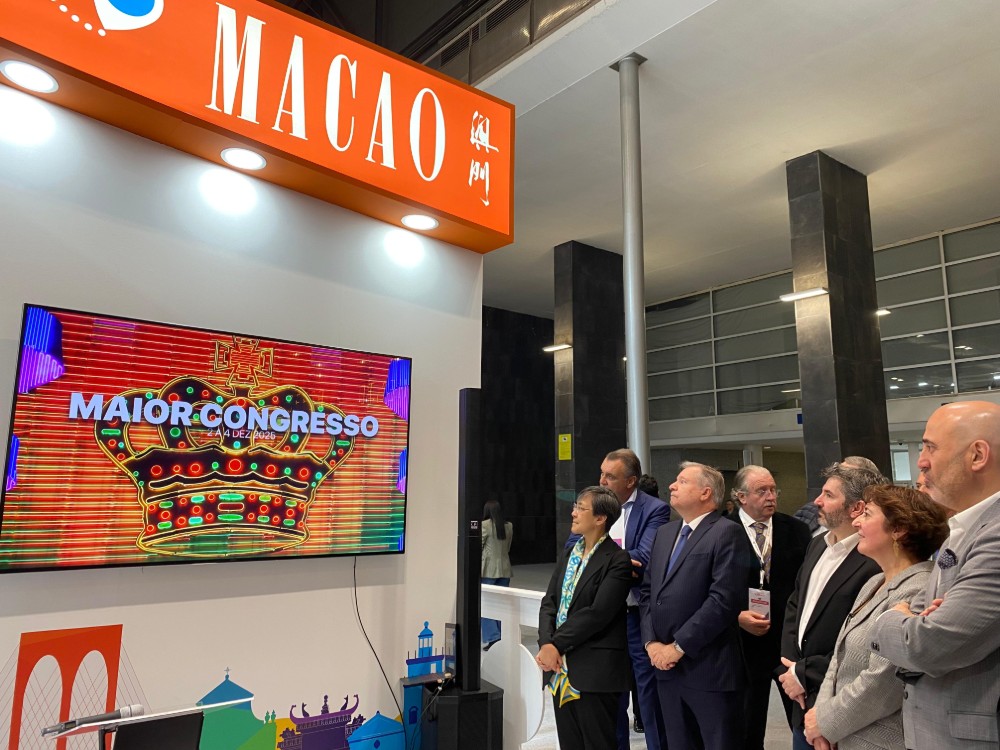
With the rise of experiential tourism, how is Macao creating itineraries or tourist products that emphasize authentic, local experiences for international travelers?
Macao’s tourism strategy leverages its dual UNESCO designations to create a unique and multifaceted destination. In 2005, the Historic Center of Macao was listed as a UNESCO World Heritage site, highlighting the city’s rich cultural history. Additionally, Macao is part of the UNESCO Creative Cities Network as a City of Gastronomy, emphasizing its fusion cuisine.
Macao’s gastronomy is deeply rooted in its history as a crossroads of Portuguese exploration, blending flavors from Africa, India, Southeast Asia, and Japan. Macanese cuisine, a highlight of this culinary heritage, is a key attraction for visitors, complementing experiences like exploring the city’s historic old town.
Beyond its heritage, Macao is embracing innovative, modern attractions. The city boasts experiential venues such as teamLab, an immersive Japanese-created installation featuring interactive projection mapping. Visitors can enjoy unique moments, like floral animations that react to the temperature of their tea. Other attractions include themed experiences like a Harry Potter exhibit and creative collaborations with intellectual properties, such as Snoopy-themed hotel activities, which add a playful element for families and children.
Macao’s hotels are increasingly exploring imaginative ways to attract visitors, from interactive experiences to new performance offerings. The blend of heritage, gastronomy, and cutting-edge entertainment ensures that Macao continues to evolve as a dynamic, must-visit destination.
Sports have become a cornerstone of Macao’s strategy for diversifying its economy and boosting year-round visitor engagement
How is Macao promoting tourism during low seasons to balance visitor flows throughout the year?
We utilize a lot of events. You know, we create events, you know, in the low season.
Say, for example, September is normally a low season because people travel a lot in July, August, summer holidays, you know. So, everybody goes back to work. Everybody goes back to school in September.
So, September used to be a low month for us, you know, traditionally. So, what we did is around 30 years ago already, but still going on very, very strong. We created what we call the Macao International Fireworks Contest.
So, it is a contest. Spain used to participate as well, you know, because it's by invitation.
Yes, we do like fireworks.
Yes. So, we have five different nights, you know, over five weekends, you know. So, and then every weekend, we invite two teams to come.
So, each will perform between 16 to 20 minutes of fireworks, you know. So, yes. So, the first fireworks will be at like 9 p.m. The second fireworks will be at 9.40, you know. So, there is like a 20-minute gap in between. And it's a contest, you know. So, we have judges, you know, and we give out prizes.
So, it creates a lot of momentum for September, you know, giving people reasons to come back because of the contest. So, they will come back. And September, although still, you know, not so many people coming, you know, compared to August.
But still, it's much better than before because people feel that, oh, I should come in September to see the fireworks, you know. So, this is one way to utilize the events, you know. Some are more traditional festivities.
Some are more, you know, events that we create. So, that's why, you know, sometimes we need to be creative to think about, okay, what should we do? Now, it's the low season, you know.
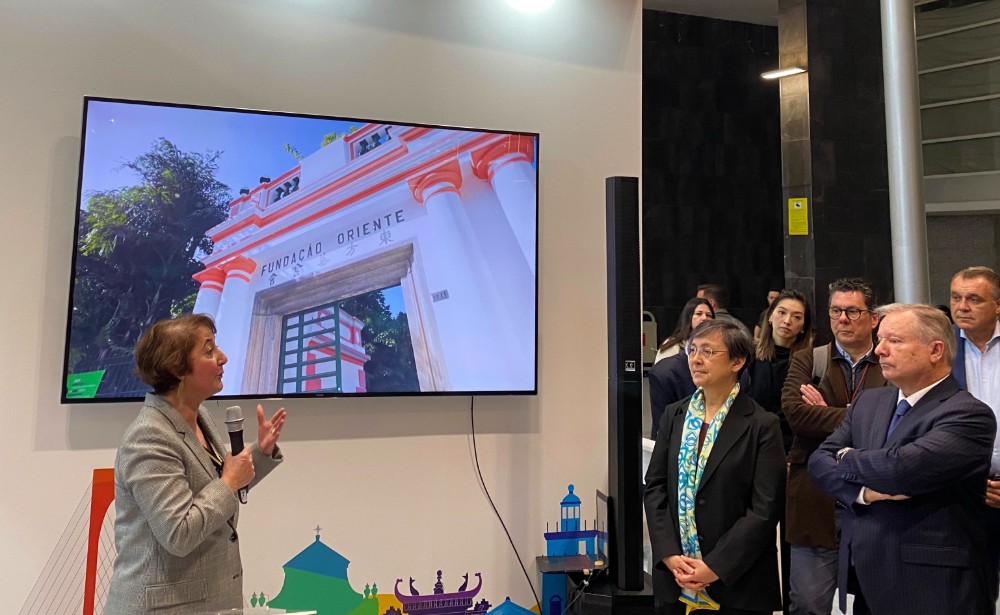
I can say another trending topic in tourism is accessibility. So, what efforts is Macao making to become a more accessible destination for people with disabilities?
Yes. I think, you know, to build a more inclusive society is very important for us. We are, you know, part of the, you know, all the conventions, the United Nations conventions, you know, for, you know, especially in terms of, you know, making, you know, society more inclusive.
Not only people with disabilities, making it more, you know, well, actually for everybody, you know, whatever kind of religion, whatever kind of, you know, beliefs that you have, you know, it's an all-inclusive society. So, in Macao, obviously, we have freedom of religion. We, in terms of people with disabilities, you know, what we're trying, there is a, some years ago, already it was introduced a new building code, not by us, of course, but it's by, you know, the government.
So, new buildings or new structures that you build, they have certain codes to follow, especially for accessibility. So, the old things we convert slowly by slowly, but then for the new buildings, there is already this building code that, you know, so the public works department will make sure that the new buildings would, you know, abide by the new building codes because it makes sure that it's more accessible for people with different kinds of disabilities.
So, for us also, you know, say for example, our, you know, our information counters, we also, we make sure that we have a lower, you know, normally the counters are quite high, but we make sure that we have a lower counters for people, you know, who come, you know, with wheelchairs, you know, and also we have things like, you know, for people with, you know, hearing disabilities, we also have, you know, some devices for them to utilize as well.
So, it's a lot of, you know, utilization of technology, utilization of, you know, the more traditional methods as well. So, yes, there, you know, it's not just the tourism, but all walks of life.
I guess this is working, this historic center is maybe less accessible, so I think it's something in the works.
For the historic center, actually, what we did was, you know, some years ago, we filmed some videos, you know, to tell people how they can go to some of the historic parts, you know, even if they are in a wheelchair. So, we filmed some videos of, you know, with the help of, you know, some of the local associations for people with disabilities. So, we worked together with them to see how we can, you know, film the video and let people know, oh, yeah, if you want to go to this place, you know, it's not that difficult.
You can go by this way, by that way, and then, finally, you can get there. You know, so, yes, we are doing a lot of different kinds of ideas. And then, obviously, nowadays, a lot of us, you know, we try as much as possible.
You know, if we do press conferences, there are, you know, sign languages as well. So, yes, a lot of consideration right now. Although we can't say that we are completely, totally, fully, you know, accessible yet, but then, you know, I think a lot of work is still going forward, you know, and there is a lot of empathy in the, I would say, in the society, you know.
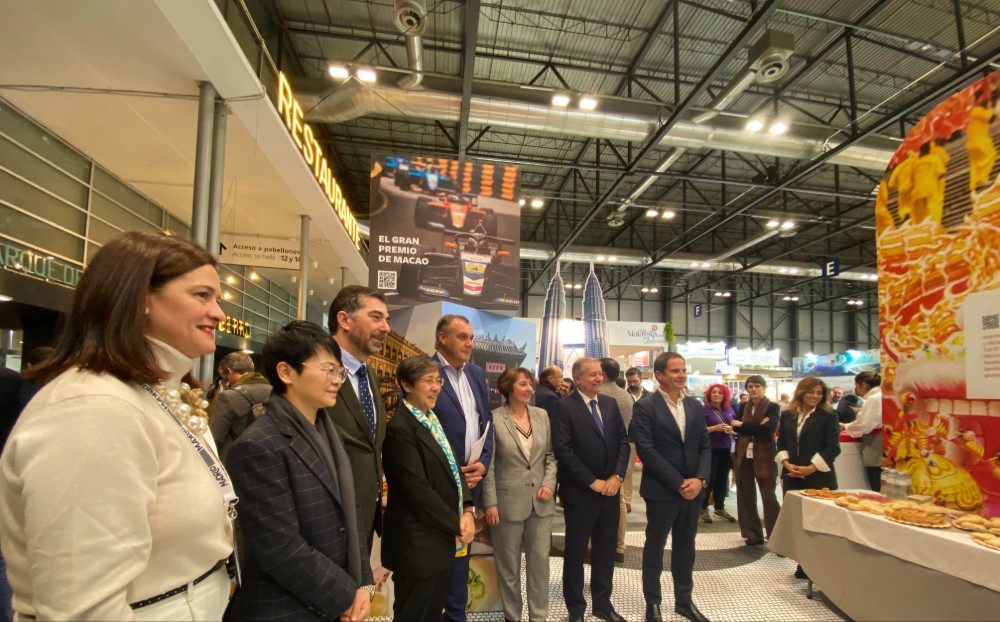
Nowadays, like, they are talking about 25% of the world population are, you know, are Islam, you know. So, it's also very important for our local hotel people, for our local travel agencies to understand these people more because there are a lot of very subtle, you know, requirements, you know, in their religion, you know. So, yes, we, you know, if we want to, you know, to be a tourism city for everybody, we need to be, you know, we need to have those sensibilities for them as well.
So, right now, we have just started to help some of the restaurants get their, you know, halal accreditation as well. So, yes, for, you know, it's not only for disabilities, but it's also for different religions, different kinds of beliefs, you know, to make sure that, you know, people understand them better and can serve them better. Because we, at the end of the day, are trying to make Macao a world center of tourism and leisure.
So, for people to feel, you know, that they are happy with the place, you know, we need to make sure that we understand them better.
The latest trend in tourism now is sustainability, the environment. All the time we are talking about that and it's very reasonable to do so. So, how is Macao engaging local communities, and designing and developing responsible tourism programs?
Well, obviously, we are also, because we are part of the UCCN, the Creative Cities Network, of course, and also the government is, you know, because of China mainland as well, you know, so there is, you know, we also adhere to the SDGs, you know, the Sustainable Development Goals of the United Nations. So, yes, there is a lot of work being done there. And by different parts of the government as well as the local population as well.
So, we have interesting things like, you know, every, you know, we are trying as much as possible to get more sustainability accreditation. Say, for example, our own Grand Prix Museum, we also got the LEED certification as well, you know. So, we try as much as possible to make the place more sustainable.
We put solar panels on top of the museum, you know, and so that will help in terms of electricity consumption as well. There are a lot of other things, you know, that go into the LEED, you know, the LEED certification. So, the hotels are also, you know, they have their own bottling of water, you know, so it's a lot of reutilization of resources as well, you know.
So, yes, you know, as much as possible. We can't say that we are completely sustainable yet, but then there are a lot of efforts going into it. Some of the hotels even grow their own herbs and everything.
Yeah, that's great. Yeah, so it's a lot of new ideas coming out, you know. I think it's very important that people understand the importance of sustainability.
And then secondly, you know, we are also, you know, encouraging them to think about different ways which they can, you know, they can also become more sustainable.







